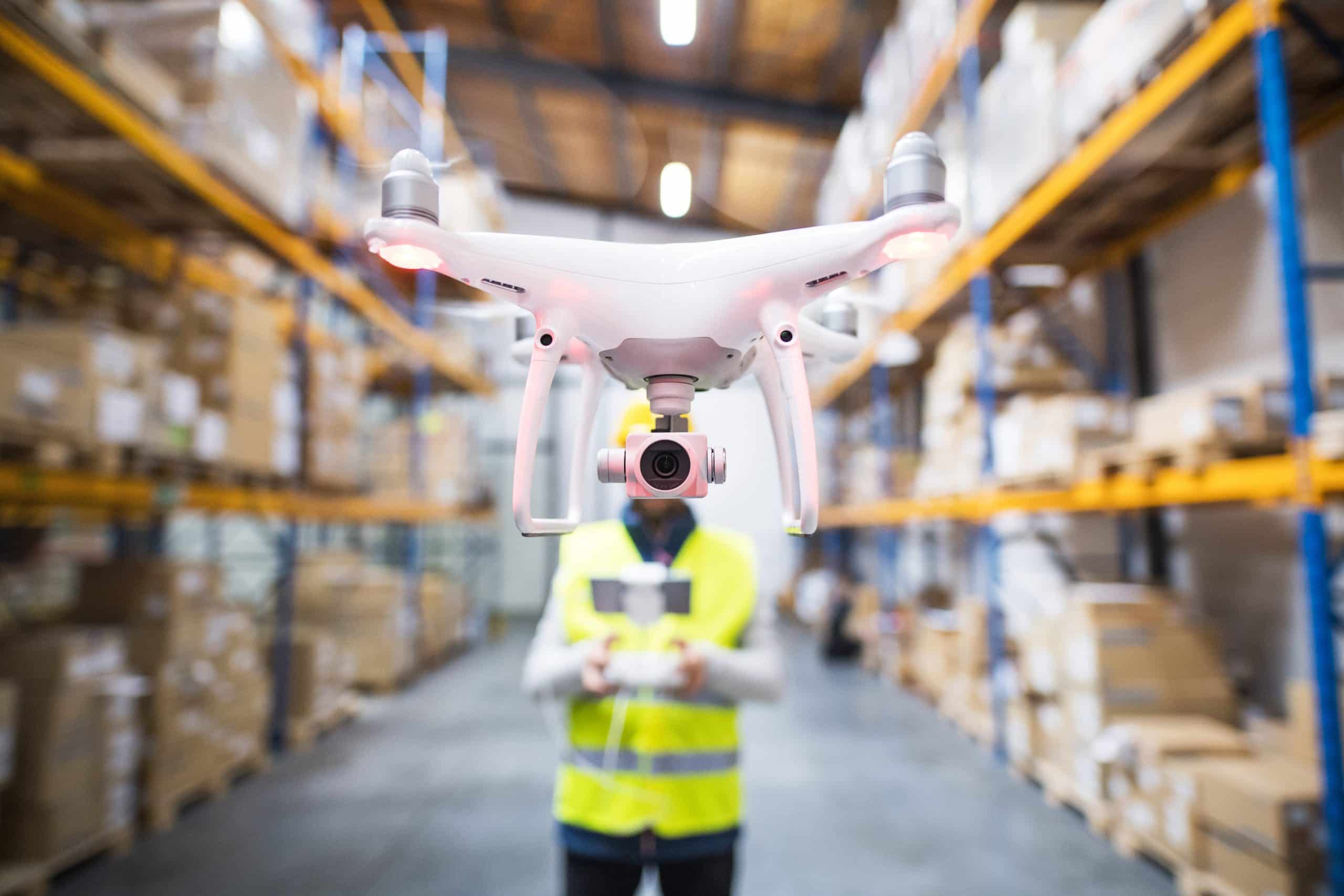What’s the Latest in Drone Delivery Services within UK’s Logistic Sector?

Drones are no longer just buzzing in the sky for leisure; they are now revolutionising the logistics industry worldwide. Drones have swooped into the delivery services, promising faster deliveries, reducing operational expenditure, and enhancing customer satisfaction. From retail and e-commerce to healthcare, drones are transforming various sectors. Within the UK, the drone delivery market is soaring high with impressive trials and extensive implementation plans.
The Rise of Drones in Delivery Services
In the beginning, drones were often linked to military operations or as a hobbyist’s toy. But over the years, their potential for commercial use has been widely recognised and incorporated in various sectors. The drone delivery service, particularly within the logistics sector, is a rapidly growing field.
En parallèle : How Can Real-Time Language Processing Enhance Emergency Dispatch Services in the UK?
Amazon introduced the concept of drone delivery through Amazon Prime Air. This innovative service aims at delivering a package within 30 minutes using drones. As a pioneer in this field, Amazon has paved the way for various companies to explore and invest in drone delivery services.
Drone delivery services offer promising possibilities such as speed, efficiency and reduction in human errors. Companies globally are capitalising on these benefits to streamline their operations, increase productivity and gain a competitive edge. The UK market, in particular, has been proactive and open to integrating drone delivery services into their logistic operations.
A découvrir également : What’s the Potential of 3D Bioprinting in Developing Organ Transplants?
Drones and Medical Deliveries
One of the most impactful uses of drone delivery services is within the medical sector. In emergencies, every minute counts. In such a situation, drone delivery services can prove to be a lifesaver.
In 2020, the NHS conducted a trial run using drones to transport medical supplies between hospitals in the Isle of Wight. The success of this operation led to the expansion of the project, with drones delivering necessary medical supplies including medicines, PPE kits, and lab samples.
In the ongoing COVID-19 pandemic situation, drone delivery of medical supplies has played a critical role in ensuring that essential medical supplies reach the required destination in a timely manner. It has not only helped in maintaining the supply chain effectively but has also reduced the risk of spreading the virus.
Skyports – the Game-Changer in UK’s Drone Delivery Market
A key player in the UK’s drone delivery market is Skyports. This London-based company is making waves in the industry with its innovative approach to drone delivery services.
Skyports specialises in building drone infrastructure, including ‘vertiports’ – a type of helipad for drones. These infrastructures allow drones to land, recharge, and load packages for delivery. The success of their operations has sparked interest in other markets, and Skyports is now collaborating with various global logistics companies for implementing drone delivery services.
Skyports’s vision is not just limited to drones delivering packages. They also aim to utilise drones for passenger transportation, thereby bringing about a significant transformation in the logistics industry.
Future of Drone Deliveries
While the present has already witnessed impressive strides in drone delivery services, the future holds immense promise. With advancements in technology and an increased understanding of drones’ potential, the delivery system is set to witness a significant change in the coming years.
One of the future prospects is the delivery of mail by drones. Royal Mail has already begun experimenting with this concept, with a successful trial that saw a drone deliver a package to a remote lighthouse on the Isle of Mull. As these operations prove successful, it is likely that drone mail deliveries will become commonplace in the future.
Moreover, the onset of 5G technology will further enhance the capabilities of drones, thereby increasing their efficiency and effectiveness in delivery operations.
While the future is promising, it won’t come without challenges. Concerns around safety, privacy, and regulatory compliance will need to be addressed. But as technology advances and the benefits of drone delivery services become increasingly apparent, it is likely that these hurdles will be overcome, paving the way for a revolutionised logistics sector.
To sum up, the integration of drones in the logistics sector, especially in delivery services, is a trend that’s here to stay. It is set to bring about significant transformations in the way deliveries are made, thereby making a substantial impact on the global logistics industry. With companies like Amazon, Skyports, and Royal Mail leading the way, the sky is truly the limit for drone delivery services.
Drone Deliveries for Food and Retail
Another sector where drone deliveries are making waves is food and retail. The concept of drone deliveries started as an innovative experiment, but it has now become reality in the UK. For example, Just Eat has been using drones for food delivery services in selected areas, and the response has been fantastic.
In addition to food delivery, retail giants like Argos have been conducting successful trials of drone deliveries. The ability to bypass traffic and deliver goods directly to customers’ doorsteps within a half-hour has put these companies at a distinct advantage. This is especially true for businesses situated in densely populated urban areas where road congestion can often delay deliveries.
This leap in retail logistics not only provides an excellent customer experience but also benefits the environment. Drone deliveries cut down on the carbon emissions produced by traditional delivery vehicles, thereby contributing to the fight against climate change.
However, the challenge here lies in the scale of operations. While drone deliveries work efficiently for small-scale operations, the question of whether they can handle large-scale deliveries is still under investigation. Moreover, the issue of drone traffic management and maintaining air safety becomes a concern when the usage of drones increases in a specific area.
Harnessing the Potential of Drones in Public Services
The potential of drones extends beyond commercial use; they can be extremely useful in public services as well. Emergency services such as fire and rescue departments can use drones for delivering essential supplies, conducting search and rescue operations, and even assessing situations before human involvement.
For instance, the London Fire Brigade is using drones fitted with thermal imaging cameras to assess fire outbreak situations. This not only helps in formulating a strategic firefighting plan but also ensures firefighters’ safety by providing a clear overview of the scenario.
Furthermore, drones can also be helpful in disaster management operations. They can deliver relief materials to areas that are difficult to reach by road or have been cut off due to natural disasters. The potential of drones in such scenarios is immense, and the UK is just beginning to scratch the surface.
Conclusion
In conclusion, drone delivery services have shown immense potential in transforming the logistics sector within the UK. From delivering essential medical supplies to fulfilling retail orders, drones have proven their mettle in challenging situations.
However, it is important to remember that this is still a developing field, and there are challenges to overcome. Companies must work closely with regulatory bodies to ensure the safe and efficient operation of drones. The public’s perception of drones and their acceptance will also play a significant role in the success of drone delivery services.
With the continued advancement in technology and a clear regulatory framework, drones could soon become an indispensable part of the logistics industry. The UK, with its proactive approach and openness to innovative technology, could indeed lead this revolution. The journey has just begun, and it is exciting to think about what lies ahead. The possibilities seem endless, and the future of drone delivery services looks incredibly bright.
